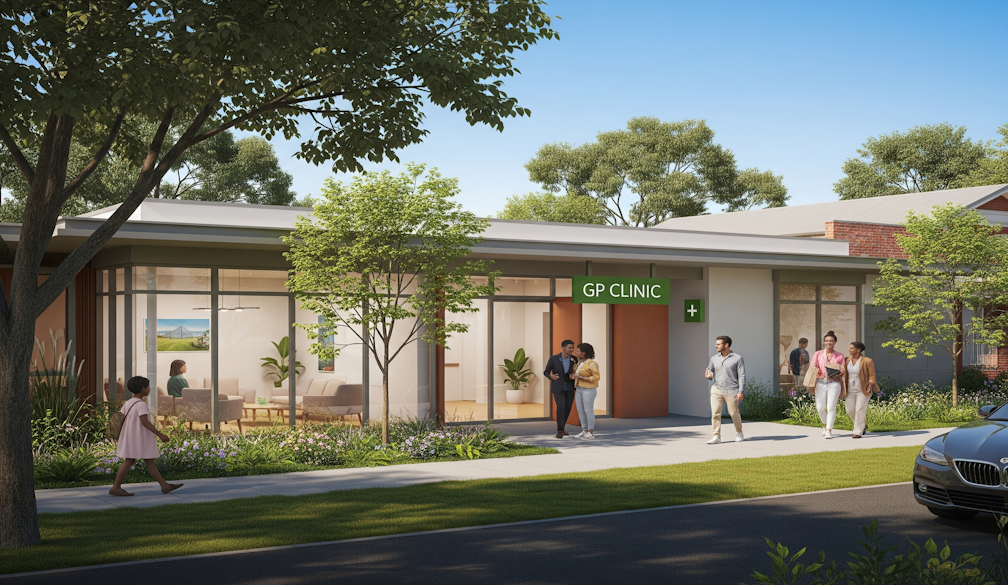The Importance of Visiting a GP Clinic for Your Health

When it comes to looking after your health, the first point of contact for most people is a gp clinic. These clinics play a vital role in providing primary healthcare, offering everything from routine check-ups and vaccinations to managing chronic conditions and referring patients to specialists when needed. A gp clinic is often the foundation of the healthcare system, ensuring that patients receive ongoing, accessible, and comprehensive medical care throughout their lives.
What is a GP Clinic
A gp clinic is a medical facility where general practitioners provide healthcare services to individuals and families. General practitioners are trained to treat a wide range of conditions, making them essential for both preventive care and the management of everyday health issues. Whether you are dealing with a sudden illness, seeking advice about lifestyle changes, or managing a long-term condition, a gp clinic provides the expertise and support you need.
Unlike emergency departments, which focus on urgent cases, a gp clinic offers continuous care that builds a long-term relationship between doctor and patient. This continuity ensures that your health is monitored over time, with your medical history forming the basis for tailored treatment and advice.
The Role of Preventive Care in GP Clinics
One of the most important roles of a gp clinic is preventive care. Regular visits allow doctors to catch potential health problems before they become serious. Routine screenings, blood tests, and physical examinations help detect early signs of conditions such as high blood pressure, diabetes, or heart disease. Vaccinations and lifestyle guidance also form part of preventive care, ensuring patients stay protected against illness.
By promoting regular check-ups, a gp clinic helps patients maintain their overall health and avoid costly treatments later. Preventive care not only extends life expectancy but also improves quality of life by addressing issues before they progress.
Managing Chronic Conditions
A gp clinic is essential for patients living with chronic conditions such as asthma, diabetes, arthritis, or hypertension. Managing these conditions requires consistent monitoring, medication adjustments, and lifestyle support, all of which are provided by general practitioners. Having a trusted doctor who understands your medical history ensures better treatment outcomes and helps you manage symptoms effectively.
For many patients, a gp clinic becomes a partner in long-term health, offering the reassurance of ongoing support and guidance in navigating chronic illnesses.
Comprehensive Family Care
A gp clinic is not just for individuals—it is designed to support families. From pediatric care for children to geriatric care for seniors, general practitioners treat patients across all age groups. This makes it convenient for families to have a single healthcare provider who understands their collective health needs.
The family-oriented nature of a gp clinic also fosters stronger relationships between patients and doctors. By treating multiple generations, doctors gain insights into family health histories, which can be valuable in identifying genetic or hereditary conditions.
When to Visit a GP Clinic
People often visit a gp clinic for common illnesses such as colds, flu, or minor infections. However, general practitioners also address more complex health issues, including mental health concerns, skin problems, allergies, and women’s health needs. They are trained to evaluate a wide range of symptoms, provide accurate diagnoses, and determine whether a specialist referral is necessary.
Visiting a gp clinic is also essential for annual health check-ups. Even when you feel healthy, regular visits help identify hidden issues and keep you on track with preventive care.
Referrals and Coordinated Care
While a gp clinic provides broad healthcare, some conditions require specialist intervention. In such cases, general practitioners serve as the link between patients and specialists. They ensure smooth referrals, provide the specialist with detailed medical histories, and continue to coordinate care once specialist treatment begins. This system creates a seamless healthcare experience and ensures no part of your care is overlooked.
The Accessibility of GP Clinics
Accessibility is one of the biggest strengths of a gp clinic. These clinics are typically located within local communities, making it easy for patients to access care without long travel times. Many clinics offer extended hours, same-day appointments, and telehealth services, ensuring that patients can see a doctor when they need it most.
Having a gp clinic close to home provides peace of mind. Families know they can quickly access medical advice, prescriptions, and follow-ups whenever required, reducing the need for unnecessary hospital visits.
Building Long-Term Relationships
One of the unique benefits of a gp clinic is the relationship built between doctors and patients. Over time, general practitioners develop an understanding of a patient’s medical history, lifestyle, and preferences. This trust fosters open communication and more personalized care. Patients feel more comfortable discussing sensitive health issues, and doctors are better equipped to provide holistic treatment plans.
Conclusion
A gp clinic is more than just a place to go when you feel unwell—it is a cornerstone of healthcare that focuses on prevention, treatment, and ongoing support. By offering accessible, comprehensive, and personalized care, gp clinics help patients and families maintain their health at every stage of life. From routine check-ups to managing chronic conditions and coordinating specialist care, the role of a gp clinic is essential for long-term well-being.
Investing in regular visits to a trusted gp clinic means investing in your health. With the guidance and expertise of general practitioners, you can take proactive steps to prevent illness, manage conditions, and enjoy a healthier, more confident life.
